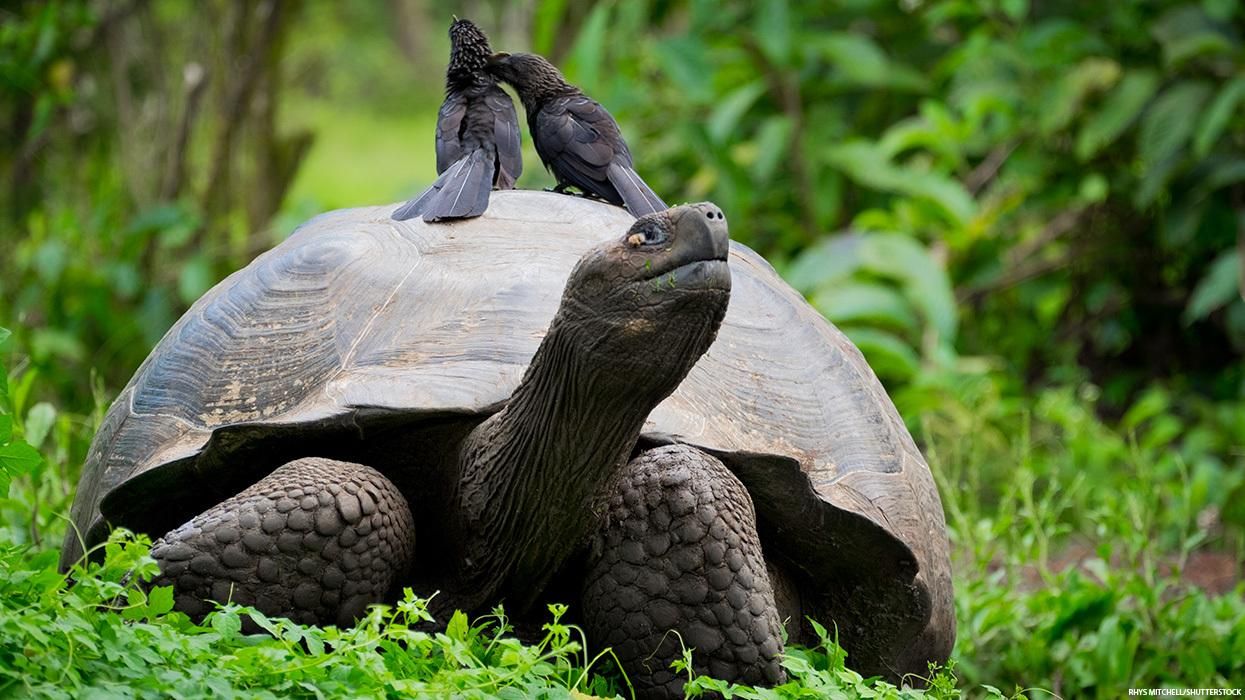To combat the effects of climate change, experts are suggesting that nations grant legal rights to animals and plants.
A report released Monday, Law in the Emerging Bio-Age, has called upon lawmakers to explore "the impact of biotechnology, damage to the global ecosystem and the rights of non-humans." As technological developments rapidly advance, the study urges experts to consider the environmental risks of new practices.
"Activity in the Biosphere, alongside machine learning and emerging technologies, is creating a new generation of legal activity and ethical questions," it reads. "Rapid developments in the fields of synthetic biology, biotechnology, and bioenergy have already caused shifts in the biological risk landscape and are key drivers of future opportunities and threats."
Report co-author Dr. Wendy Schultz of The Law Society, a professional body for solicitors in England and Wales, told The Guardian that the study explores how humanity can redefine their relationship with the natural world.
“There is a growing understanding that something very different has to be done if our children are going to have a planet to live on that is in any way pleasant, much less survivable, so this is an expanding trend," she said. "Is it happening as fast as any of us would want? Possibly not, which is why it’s important to get the word out.”
According to the report, certain species already receive legal protections, such as those classified as "endangered" in the United States. Instead of granting legal rights to each individual species, the study suggests that entire ecosystems should be regarded as entities to preserve.
The report called on lawmakers and practices to "explore the concepts of rights, identity, and personhood as critical to humans’ relationship to living systems and our stewardship of environmental quality."
"Perhaps we should challenge the very idea of rights as something vested in individuals and move towards a ‘whole systems’ framework of law, wherein rights are accorded in a nested natural hierarchy of dependence," it states.
To grant legal protections to ecosystems could theoretically hold companies accountable for their role in climate change via transparency and accountability.
"The role of regulation is essential to shedding light on hidden or damaging practices that some are determined to continue," the report explains. "If rights were granted to non-humans or living systems, then questions of liability for damage to the environment, such as climate change or biodiversity loss, arise in relation to the causal link between the damage and the person/entity causing it."
Schultz also said that the purpose of the report was to bring perspectives from Indigenous communities and shift away from the western practice of human-supremacy over ecosystems.
“Granting something that is culturally numinous rights just so you can preserve it gets us to a kind of valuation that, among other things, is a cultural shift away from the Judeo-Christian great chain of being – dominion over nature,” Schultz explained. “This is reconfiguring it to place us where we have always been and where we should be thinking of ourselves as belonging, as just a node in this greater web of life on the planet.”
Report co-author Dr. Trish O’Flynn added that technological and legal practices should be “fit for a more than human future."
“We sometimes see ourselves as outside nature, that nature is something that we can manipulate,” she said. “But actually we are of nature, we are in nature, we are just another species. We happen to be at the top of the evolutionary tree in some ways, if you look at it in that linear kind of way, but actually the global ecosystem is much more powerful than we are."


















































